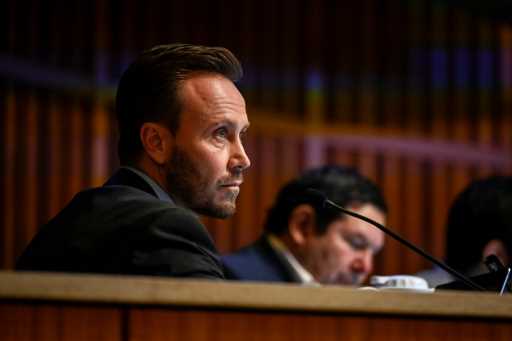Aurora, Denver consider halt to “indefensible” practice of taxing statewide fees
The Aurora City Council has been among those leading an effort to stop cities from taxing state-government fees, including statewide fees on plastic bags and retail delivery orders.
The Colorado Legislature passed SB21-260 last year, which approved new statewide government fees to help fund transportation, and the 27-cent delivery fee (subject to inflation) for any sales in Colorado went into effect on July 1. The plastic bag fee is set to go into effect in January. Although the fees were not supposed to be taxed, home-rule cities were taxing the fees because of their “purchase price” definitions.
Aurora Council member Dustin Zvonek said he was surprised to learn that the city taxed these fees and then found out there were other fees on the books that are subject to the city’s 3.75% municipal sales tax. So he decided to propose an ordinance that would exempt these fees from taxes, and the Colorado Municipal League has now created model legislation for other cities to exempt municipal sales taxes from state-imposed delivery fees.
“I think it’s indefensible for government to tax a fee. This fee is not a product. It’s not a service. It’s a government fee,” Zvonek said. “And I think it’s another example of ways in which government gets a little bit deeper into the pockets of taxpayers unnecessarily.”
The Denver City Council is planning to review an ordinance next week that would do the same for its residents, as Colorado Springs is expected to do, and Castle Pine announced a similar move this week.
In Aurora, the ordinance is more broad and would apply to all government fees, current and future, and would exempt them from municipal sales and use taxes. Exempting the delivery fee and a waste tire fee from these taxes would cost the city about $220,000 per year, according to Aurora city staff. Staff didn’t calculate the tax revenue loss from the plastic bag fee because that hasn’t been implemented yet.
Zvonek said the fees and taxes may seem small, but they “ultimately pile up to the point to where you’re talking real dollars and cents and you’re making things less affordable.”
“We want to do what we can to attract business and attract people to want to shop here,” he said. “And retail is so critical for a city that relies on sales tax revenue — 65% of our city revenue is sales tax — and so I think that continuing to pile these little costs on, whether it’s goods and services, ultimately makes us less competitive.”
The City Council approved the move unanimously on first reading and is expected to pass the ordinance later this month.
Source: Read Full Article

